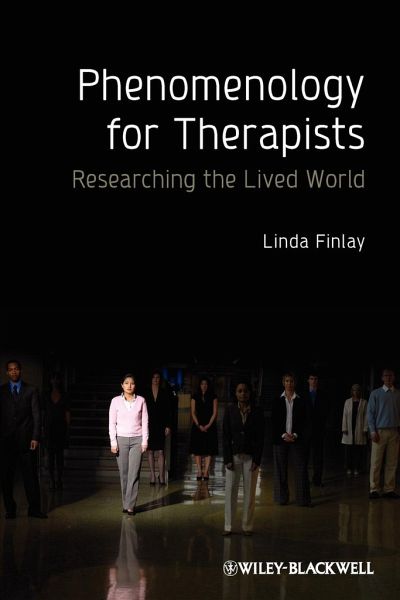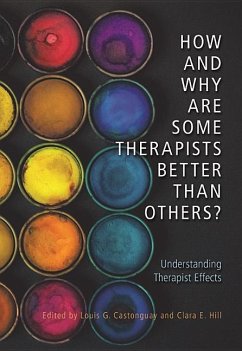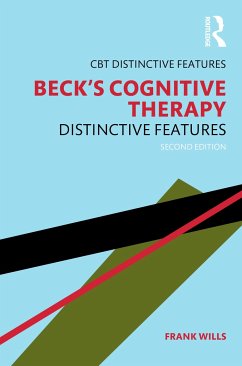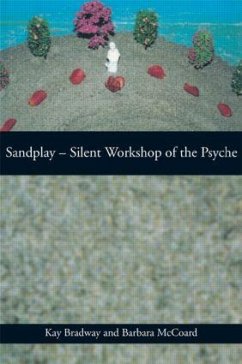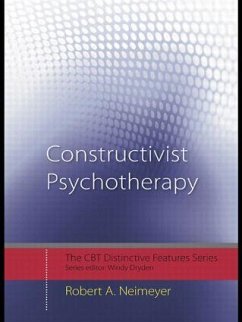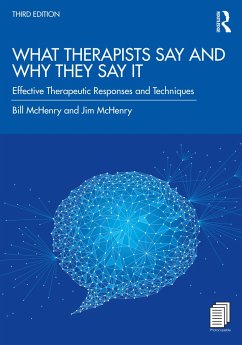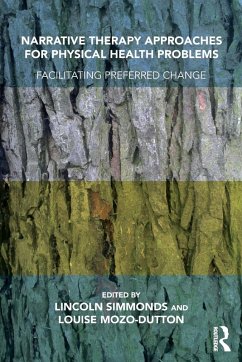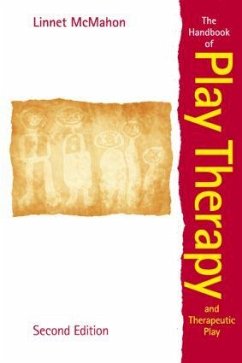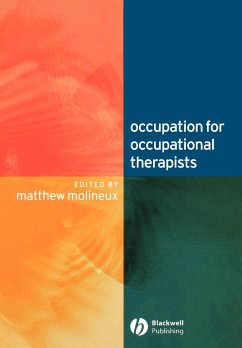Linda Finlay (Consultant)
Broschiertes Buch
Phenomenology for Therapists
Versandkostenfrei!
Versandfertig in 2-4 Wochen
Weitere Ausgaben:

PAYBACK Punkte
28 °P sammeln!





Phenomenology has become increasingly popular with therapists seeking to build on the humanistic values that often underpin their work. Phenomenology for Therapists provides an accessible exploration of phenomenology in practice and is geared to the needs of therapists.
Linda Finlay is a freelance Consultant offering training and mentorship on how to apply qualitative research in health care. In addition to her psychotherapy practice, she also teaches psychology and writes with the Open University. Her books include Groupwork in Occupational Therapy (1993), The Practice of Psychosocial Occupational Therapy (3rd edition, 2004), Qualitative Research for Health Professionals: Challenging Choices (ed. with C. Ballinger, Wiley Publishers, 2006), and Relational-Centred Research for Psychotherapists (with K. Evans, Wiley-Blackwell, 2009).
Produktdetails
- Verlag: John Wiley and Sons Ltd
- Seitenzahl: 320
- Erscheinungstermin: 22. Juli 2011
- Englisch
- Abmessung: 229mm x 152mm x 17mm
- Gewicht: 470g
- ISBN-13: 9780470666456
- ISBN-10: 0470666455
- Artikelnr.: 33353015
Herstellerkennzeichnung
Libri GmbH
Europaallee 1
36244 Bad Hersfeld
gpsr@libri.de
"As a dominantly clinical practitioner who nonethelessretains an active interest in research, and particularlyphenomenological research, I found this book both useful andinformative." (The Indo-Pacific Journal ofPhenomenology, 1 May 2013)
"Phenomenology - when it is done well-discloses, transforms and inspires. That is why it excitesme, why I am passionate about it . . . Fortunately, this doesnot need to stand in the way of readers making use of thisotherwise excellent book in their own way and for their ownpractice-relevant research needs." (CounsellingPsychology Review, 2 June 2012)"The many current research examples provide a useful andeasy-to-read description of what is possible in phenomenologicalresearch. This book is a
"Phenomenology - when it is done well-discloses, transforms and inspires. That is why it excitesme, why I am passionate about it . . . Fortunately, this doesnot need to stand in the way of readers making use of thisotherwise excellent book in their own way and for their ownpractice-relevant research needs." (CounsellingPsychology Review, 2 June 2012)"The many current research examples provide a useful andeasy-to-read description of what is possible in phenomenologicalresearch. This book is a
Mehr anzeigen
wonderful addition to qualitativemethodology texts and I would recommend it as a standard text foranyone considering counselling/ psychotherapy research." (TherapyToday, 1 December 2011)This excellent text provides a lively and accessible read which iscertain to encourage and inspire the increasing number of therapypractitioners who seek to undertake research of immediate relevanceto their professional field. Finlay is passionate about the crucialrole practitioners can play in shaping and enhancing their workthrough rigorous research. She makes clear how the knowledge andwisdom of therapists embedded in the real world can be harnessed,and indeed must be harnessed, if we are to create meaningfulresearch capable of making a genuine impact on psychologicalhealthcare provision. Phenomenology for Therapists isrequired reading for all therapist researchers who want to make adifference to therapeutic practice in the real world; I am certainit will become a classic in the field.
--Simon du Plock, Professor of Psychology,Metanoia Institute and Middlesex University, UK
Linda Finlay invites readers to engage with the world ofphenomenology in lively, intellectually stimulating, and movingways. She is a trustworthy guide who provides a goodconceptual map of the area. In addition, she provides a verypractical sense of the territory when walking its major routes.Using many relevant examples that therapists will recognise, thisbook demonstrates how a phenomenological approach to research isconsistent with core therapy values and practices.
--Les Todres, Professor of QualitativeResearch, Bournemouth University, UK
Finlay does a superb job of demonstrating how phenomenologicalresearch and therapeutic practice complement each other. Sheprovides powerful examples of qualitative research that deepen ourunderstanding of human existence and inform clinical practice.Psychotherapists who read her book are likely to be enticed by thepossibility of doing research, no longer viewing it as a practicebetter left to academics.
--Steen Halling, Professor of Psychology,Seattle University, USA
--Simon du Plock, Professor of Psychology,Metanoia Institute and Middlesex University, UK
Linda Finlay invites readers to engage with the world ofphenomenology in lively, intellectually stimulating, and movingways. She is a trustworthy guide who provides a goodconceptual map of the area. In addition, she provides a verypractical sense of the territory when walking its major routes.Using many relevant examples that therapists will recognise, thisbook demonstrates how a phenomenological approach to research isconsistent with core therapy values and practices.
--Les Todres, Professor of QualitativeResearch, Bournemouth University, UK
Finlay does a superb job of demonstrating how phenomenologicalresearch and therapeutic practice complement each other. Sheprovides powerful examples of qualitative research that deepen ourunderstanding of human existence and inform clinical practice.Psychotherapists who read her book are likely to be enticed by thepossibility of doing research, no longer viewing it as a practicebetter left to academics.
--Steen Halling, Professor of Psychology,Seattle University, USA
Schließen
Für dieses Produkt wurde noch keine Bewertung abgegeben. Wir würden uns sehr freuen, wenn du die erste Bewertung schreibst!
Eine Bewertung schreiben
Eine Bewertung schreiben
Andere Kunden interessierten sich für



